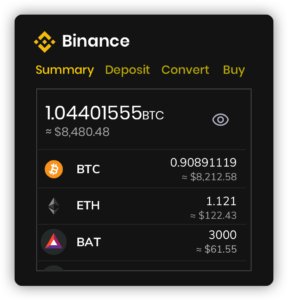
Ever since Brave Browser was launched, comparisons between Brave vs Firefox got heated up. Especially since the idea of Brave Browser came to fruition mostly thanks to the efforts of one man many thought was finished in the business world, former Mozilla co-founder and CEO Brendan Eich.
Merely 11 days after he was advanced to the position of the CEO of Mozilla Corp., Mr. Eich had his dreams and efforts smashed by a bunch of internet busybodies who had an issue with him donating money to a failed Californian ballot initiative that wanted to define marriage as an affair reserved for heterosexual couples.
His story was somewhat of an outlier back in the days but nowadays we see cases like his on a regular basis: once the Twitter police gets their hands on something controversial you did or even said years ago (even though that something is perfectly normal, legal, and doesn’t affect the quality of the work you put out), an avalanche of trolls and virtue signaling cause fighter-I mean journalists will swoop in with damning articles and catchy hashtags and remove you from your job.
Basic Attention Token – BAT Price Forecast 2021
This is more or less what happened to Eich back in 2014. Mozilla felt the social justice warrior pressure and decided it’s easier to succumb to the will of a loud minority than to stand up for a loyal employee (let alone its founder). As such, a “mutual” agreement was reached with Eich to have him resign from his position at the corporation.
The company cited their dedication to “diversity, equality, and being different” as the reason why they did this, which is quite ironic considering they fired the man just because he dared to think differently.
For his part, Eich refused to bend the knee regarding his principles, which probably irked the outrage mob the most and led to him losing his job at a company he brought from the ground up.
But I digress; whether you thought his firing was justified or not, we can all agree that it ultimately led to the creation of one of the most popular cryptocurrency-related projects of today, the mentioned Brave Browser.
As is the case with good cryptocurrency start-ups, there’s no room for identity politics; if you’re offering a quality blockchain-based service, people will take notice. And take notice they did, as Brave managed to collect $36 million during its 2016 ICO (having secured $2.5 million in angel investment prior to that).
It’s been almost three years since that and Brave seems to be on the up-and-up. But is this enough for the project to achieve its ultimate goal, which is to supplant one of the current browser heavyweights by providing ad-and-tracker-free browsing experience?

As you could probably tell from the somewhat extensive intro, today we’ll be comparing Brave’s ability to do so against its founder’s former product, Mozilla Firefox.
Let’s dive right into the Brave vs Firefox comparison by taking a look at the major features like privacy, speed, extensibility etc.
And, yeah – not to forget is our complete review of Brave Browser where we cover all the ins and outs of it. Also worth reading is our guide on how to earn BAT while using Brave. Plus, read more about how does Brave cope against other private browsers like DuckDuckGo and Epic Privacy and who wins the battle between Brave and Google Chrome.
What you'll learn 👉
Brave vs Mozilla
Brave Browser is a fast, private and secure web browser for desktop and mobile devices. It natively blocks ads and trackers and prevents you from being tracked by sneaky advertisers, malware and pop-ups.
Mozilla FireFox is a free and open source web browser developed by The Mozilla Foundation and its subsidiary, Mozilla Corporation. Firefox supports all major OS platforms like Microsoft Windows, macOS, Linux, BSD, and more.
As illustrated by the graph below, Brave Browser is picking up steam, especially in the US. Firefox on the other side is losing interest of users, also clearly visible from the Google Trends graph:
First thing to note about Brave is that it’s based on Chromium, an open source browser project that also forms the basis for the currently most popular browser on the market, Chrome.
Background Engine
As such, from the “engine” side of things Brave is pretty much a re-skin of Chrome, offering quite similar levels of performance to what Google’s browser has to offer. Some might argue that this contributes to Google’s stranglehold on the Internet, and they would be kinda correct.
Still, Chromium is rather polished performance-wise and Mozilla has been known as a slow, resource-hogging browser ever since its creation. Does that translate into their performance?
Opening Mozilla on the “new tab” page taxed our test CPU only 8-10%, whereas with Brave, the CPU suffered the loads of around 3-4%. RAM is probably the main area you want to look at; Brave seems to grab around 900 MB of this precious resource once launched, while Mozilla shows that they’ve improved massively since their early days with only 300 MB of RAM being used once you open it.
Additionally, we ran both through this free online browser speed test which measures online the speed of JavaScript in your browser; Mozilla returned a performance level of 1566 while Brave recorded significantly lower 921.
The result of our small test clearly shows what was obvious from the start: Brave does seem to have slightly worse performance. We say that this was obvious as Brave is still in early development and hasn’t even seen its 1.0 release yet.
Best crypto trading bots on the market.
Additionally, Brave comes pre-loaded with various features and “add-ons” while our test Mozilla had nothing on it, which definitely led to Brave hogging up more RAM. Overall these performance levels won’t matter much to users today, as most people have dual core and stronger CPU’s, as well as more than enough RAM to handle either of the browsers.
Therefore, the battle will be fought and won on other fronts, fronts like the privacy, security, and ad-blocking ability that are on offer to the average user.
Security – Hardened Firefox vs Brave
Brave comes out strong here, most notably having pre-installed phishing, malware, script blockers and features like HTTPS Everywhere (which automatically upgrades each website you visit to the HTTPS standard). Brave also has a pre-installed AdBlock shield that gives you the ability to choose whether you want to see all ads, see only Brave ads, or see no ads at all.
Finally, Brave offers simple cookie control and fingerprinting protection features that let you control who gets access to your data.
Brave is also packed with extensions such as 1Password, bitwarden and Dashlane password managers, Honey (automatically finds and applies coupon codes when you shop online), PDF Viewer, Save to Pocket (bookmarking extension), and Torrent Viewer.
Privacy – who is better Brave or Firefox
With all those features, Brave also adds that your browsing data is stored locally, without the company ever gaining access to it. This means that your data will never be sold to advertisers or exploited for nefarious purposes as a result of Brave’s actions.
Meanwhile, our barebones Mozilla offers tracking content blocking, cookie control, pop-up blocking, as well as deceptive content and dangerous software protection. This isn’t much, but users do have a massive Mozilla plug-in and extension library from which they can enhance their browsing experience with quality software like ublock Origin, HTTPS Everywhere, Privacy Badger, Decentraleyes, Cookie Autodelete and others.
One important thing to note is that the browser comes with data tracking enabled automatically; this means that Firefox has been set to collect your browsing data automatically.
They do say that permission is always asked before receiving this data but having the feature enabled as soon as you download the browser speaks volumes about their dedication to preserving the privacy of your data. Still, Mozilla can be run through the Tor privacy network which is a positive.
Syncing
Some additional features that would interest our users include the sync ability and cryptocurrency focus of these browsers. Regarding data synching, Mozilla had this feature enabled for years now; it allows you to sync your passwords, extensions, form data to any desktop, Android or iOS device.
The synchronized data is encrypted, meaning that no one can access it from the outside. Brave’s synching capabilities are much more humble, as you can only perform it on your desktop browsers. Brave Sync is encrypted from the client side, meaning that the company doesn’t get access to this data as well. The project plans on introducing sync capabilities to your Brave Payments, as well as expending the feature to Android and iOS devices in the future.
Cryptocurrency Friendliness
Finally we come to the cryptocurrency side of the matters.

Brave is clearly the “crypto-focused” one here, offering a native wallet for the project’s cryptocurrency BAT. The wallet can be loaded up with BAT that can be used for tipping content creators that apply for the Brave Publishers program. There is also a BAT incentive paid out to users who watch Brave Ads.
As for Mozilla, they had a somewhat adverse stance on crypto in the past, namely going after crypto mining scripts that websites started installing. This isn’t necessarily a bad thing but it does prevent people from “helping out” their favorite websites who decide to implement the crypto mining scripts.
MetaMask, popular Ethereum/ERC 20 token wallet client can be installed on both browsers, expanding their crypto usability significantly.
Buy crypto directly from Brave Browser

In April 2020, Brave desktop browser update (version 1.8) came out with a brand new feature: a Binance widget, the first exchange-browser integration of its kind.
The Binance widget can be accessed from the New Tab page in the Brave desktop browser. The widget has several functions for managing, buying, and trading cryptocurrency:
- Summary: Overview of your Binance account balance
- Deposit: All supported assets in the account where you can search for specific assets, and viewing fiat value
- Convert: Easy conversion from one asset to another
- Buy: Buy and sell crypto assets (Purchases are reflected in the Binance widget shortly after they have concluded)
In Conclusion – Brave Browser vs Firefox
So after we fired all the guns on Firefox vs Brave Browser comparison, which one of these two browsers comes out as our winner? It’s hard to say. Mozilla has a pedigree in the internet community, having slowly risen in popularity ever since its launch.
The company’s practices can be questionable at times but their product seems to be getting better with each update. Brave on the other hand is a pretender in the space, something Mozilla once was when Brendan Eich was in charge there.
Considering he had a significant role in getting his former company to where it is now, it’s safe to say that Brave has a good idea on what they need to do to grab a bigger market share.
The market’s biggest players, Chrome and IE, became popular mostly because they were packaged with/heavily shilled through Google/Microsoft products.
This implies that most people don’t care what type of browser they use, as long as it’s convenient for them to use it. Ultimately it should come down to the small percentage of crypto-oriented folk who might be more inclined towards Brave due to a feeling of supporting a common cause.
Others might find the features Brave has better than what the competition has on offer. It remains to be seen what the future holds, but with 7 million downloads and counting, Brave seems to be on the right path to challenge the current browser market order.







I ran Brave for 1 month and in my opinion it’s a big pile of cr@p. It looks like an 8 year old put it together at lunch time or study hall, it’s 433 mb when installed, it wants to be re installed because it can’t update ( no SH1T, I block all auto updates for everything on my system ) but it keeps throwing the warning up in your face. It does not have a menu on the upper left of the browser window, nor does it have a minimize, full size or close button on the upper right of the window. The tabs bar can not be moved below the address bar ( who wants tabs at the very top…it’s stupid ) No search line to the right of address, no icon size options and so many other things I found that were not right in my book I can’t remember them all. I don’t care about sending or receiving cryptocurrency of any kind. I just want a browser that I can customize like the OLD Firefox with skins and icon packs, one I can enjoy to look at and use that I love, like the OLD Firefox… not this new garbage.
Thanks for the comment! I think it is fair to say it is still a work in progress. You failed to mention an objectively faster opening of websites – Brave is miles ahead of both Chrome and Firefox in this important regard.
brave is a beauty , i am very satisfied with it , it stops pop ups and trackers don
Obviously Mozilla like many caved to a small vocal group rather than defend their founder and decided it was best to forgo the benefits Eich made to Mozilla and just force him out. It certainly did not help Mozilla or Firefox and Eich has done some good work with Brave browser. I am not onboard with the BAT system of rewarding web sites with tokens all the while blocking ads and in some cases replacing them with certain “approved” ads. But the browser itself works fine and satisfies those who want more privacy and reduced ads. Firefox on the other hand is simply fading off into a niche browser those few who have yet moved on to one of the many Chromium based browsers.
One minor correction: it wasn’t a “failed Californian ballot initiative” that Eich supported with his own money. In fact, the Prop 8 passed with the YES vote outnumbering the NO vote. Of course Eich’s $1,000 made zero difference to the outcome, however knowing the CEO you work for thinks that gays should be denied basic civil rights isn’t the work of “internet busybodies.” If he didn’t want the consequences, then he shouldn’t be working in tech or in the Bay Area.
Having said that, Brave today is excellent browser.
Brave is awesome IMO. Opens up quick, shows me how many times Amazon has tried to track me (constantly, over and over and over again on one page). Brave and duckduckgo bring up real, uncensored search results. The only problem I’m having is with hbomax. I cannot watch a movie on my hbomax without allowing firefox or chrome et al to take over my PC and reinsert themselves as my default browser. So sorry AT&T, not watching. At least it was free with my phone plan and I didn’t pay for that bugger.
I find the information regarding Brandan Eich’s personal beliefs to be entirely irrelevant to the conversation at hand: which is the better browser. And to declare that he “shouldn’t be working in tech if he holds views contrary to what CAL happens to think constitutes a more ethical/moral set of beliefs” is utterly foolish. I happen to believe in freedom – period. CAL is free to espouse his/her opinions as am I as is Brandan Eich. So let’s drop the pettiness of what one happens to believe and get back to the focus of the article: which is the better browser? For my money it’s Brave since it obviously loads pages faster and requires less RAM. End of story.
This article is dated as Brave is rapidly increasing its’ user base. It grew by about 10% last month if I remember correctly. I recently helped a friend move to Brave from Google and they love not getting all the ad garbage and how fast and uncluttered it is. They also like that their privacy and security is enhanced. Brave has now added Brave Search which is much better than the major search engines and better IMO than DDG too.
At this moment in time and for months now Brave has held the status of THE best browser. No other browser holds a candle to it in Privacy and therefore in Security. I Brave can keep this position in privacy and security it will continue to grow. It has already put pressure on the other browsers to bring up their privacy and security games. There is much more I could relate, but time and space prevents it here.
Go to EFF’s Privacy/Tracking/Fingerprint Testing page using the browsers you use and are thinking of using and compare the results… Brave wins. I think Brave Search also wins. IMO Brave browser and Brave Search, coupled with BraveTalk are the best suite available for Privacy and Security as of 2021-12-17 and Cover Your Tracks lets the user compare and decide for themselves anytime they are so incliined.